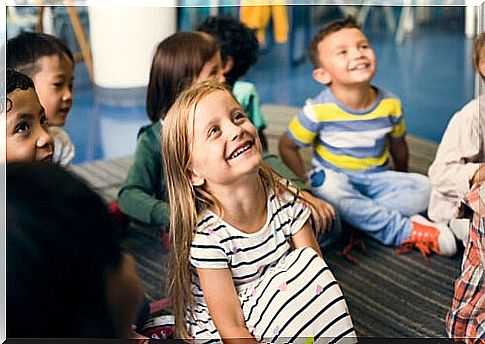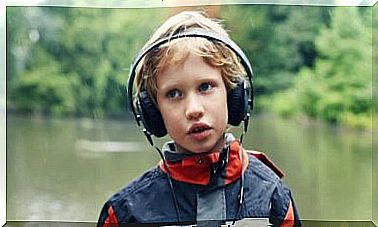5 Tips To Help Children Be Responsible

One of the great challenges for parents is to ensure that, through education, children learn to make responsible use of technology, since they begin to interact with these devices from an early age. On the other hand, helping children to be responsible with the use of screens can be a challenge that can be transferred to other planes. For example, that they are able to keep their room tidy or begin to do their homework without someone having to remind them.
To help us with this company we have positive discipline, a concept that is included in the Manual on positive discipline . Thus, with affection, understanding, empathy and mutual respect, children can be helped to be responsible. However, to achieve this it is important to start small. The following proposals can be very useful to achieve this.

1. Assign them simple tasks
The first idea or strategy to help children be responsible is to assign them simple tasks. To make the situation easier, it may be a good idea to have an adult do them as well. For example, helping with the dishes or doing the laundry with a parent is a good way to start. It will be the first step for them to acquire autonomy: to be their role models.
They can pick up the dishes while one of the parents starts to wash them. They can do the same with their own laundry, separating their white clothes from the dark ones and taking them to the corresponding buckets. In this way, progressively, children can begin to acquire responsibilities, which will also be transferred to the use of technology, doing homework, better managing their time (work for class, time for friends, games, etc.).
2. Make homework fun
Doing homework, taking out the garbage, helping to make food… These are tasks that can help children to be responsible, but they can be very boring. What is the alternative? Be creative. When it’s time to clean you can put on music and dance while sweeping the floor or dusting the shelves. Also, you can enjoy a few minutes of play after taking out the trash.
3. Parents should be an example
The Spanish Association of Pediatrics (AEPED) leaves us the following statement about parents: “they are the best example for their children, both in what they say and in what they do. ” Because the youngest reproduce what they see at home, that’s why responsible parents, because they are, already help in the education of responsible children.
For example, if we want children to be orderly, it will be positive that they see in their parents the advantages of maintaining this order. In this way, children will not feel confused or wonder why they have to do it, but their parents do not. On the other hand, in this assumption of responsibilities children can learn what or what they do not like to do. There are many great cooks who started at home helping their parents.
4. Allow them to make decisions
On the path to autonomy, it is good that children, as they grow, try this practice. Now, what can we do as educators in this regard?
Well, for example, let them choose the extracurricular activity they want to do; even granting them the opportunity to rectify if they think they have been wrong.

5. Responsibility yes, but rules too
Finally, with all the examples presented, the objective is to help children to be responsible, but also to understand that rules are necessary. Therefore, they should not be overlooked or ignored.
Rules and regulations are essential for reference; in this sense, any effort or initiative to make children understand their value and not see them as capricious impositions will help. Communication is critical during this process of helping children to be responsible.
These are some strategies that can be used as a base and a starting point, so that children acquire greater and greater responsibilities. An aspect that must be worked on since they are small and that must be done in a progressive way.
We have given some examples and ideas that can come in handy to illustrate each tip and carry it out in the most appropriate way. However, what we must be very clear about is that it is essential that children develop their responsibility from an early age.









